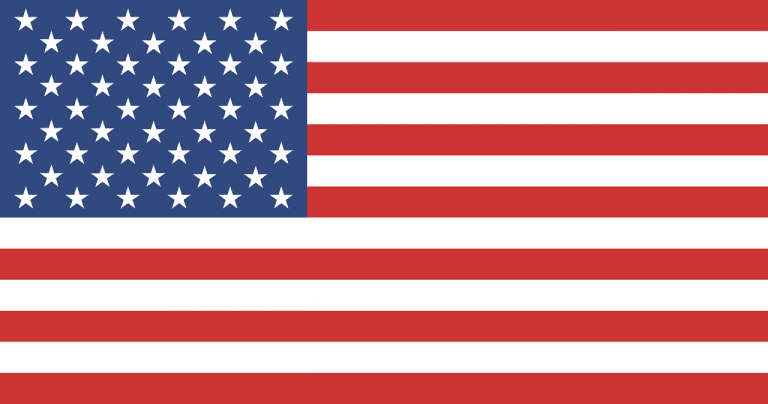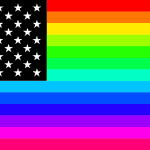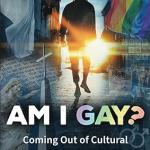Here is something that can help us navigate our way through our current protests and controversies: The flag of the United States of America.
Should we, for example, rename the U.S. military bases named after Confederate generals? Well, Fort Bragg, Fort Hood, Fort A.P. Hill, and Fort Benning were named after generals who fought against the American flag. Does it make sense to name a U.S. military base against someone who fought against the U.S. military?
But, some will say, these men were great soldiers and men of honor who showed commendable courage in defending their homeland. Fine. Respect them for that.
The German general Erwin Rommel was also reportedly a brilliant tactician and man of virtue, who conducted a “war without hate” and who was executed for conspiring to kill Hitler. Respect him for that. But don’t name a U.S. military base after him! He fought against American troops in North Africa. He fought against our flag.
It would be a fully justified policy to name military bases, as well as other installations such as ships and buildings, after those who served under the American flag. To my knowledge, there is no Fort Eisenhower, no Fort Patton, no Fort Grant. Shouldn’t there be?
Which brings us to another issue. The Black Lives Matter protests have often targeted this flag. Former NFL Quarterback Colin Kaepernick took a knee during the flag presentation during pre-game ceremonies as a protest against American racism, and now the professional sports leagues are saying that they will support such actions in the upcoming season.
But why is the flag interpreted to be a symbol of American racism? The Stars and Stripes was the flag of the Americans who fought for the liberation of Black people in the Civil War. Historians say that 359,528 Union troops died in that cause, fighting under that flag. And 10% of the Union troops who died were Black. For them, the flag was an emblem and a promise of freedom.
The 1619 Project, championed by the New York Times, which states that the true American founding was when the first slaves were brought over in 1619 and that the entire history of the nation is built around racism, does not account well for the Civil War. What precipitated that tragic conflict was the question of whether slavery would be permitted in future states, and, though other issues insinuated themselves–with 260,000 Southerners, most of whom did not own slaves, giving their lives to defend their states–one side defended slavery and the other side–those who flew the American flag–eventually ended it.
But to lots of Black Americans, we are told, the flag has become a symbol of America’s systematic racism. That, though, is a subjective interpretation. The meaning of something is not just an individual’s personal reaction, which can be idiosyncratic or mistaken. The question is, what does the flag mean objectively?
The answer to that question can be found in the official Pledge of Allegiance to that flag:
“I pledge allegiance to the flag of the United States of America, and to the republic for which it stands, one nation under God, indivisible, with liberty and justice for all.“
Isn’t “liberty and justice for all” what the Black Lives Matter movement desires? If the nation hasn’t always lived up to its own ideals, so stated, shouldn’t it be held to that standard, as symbolized by the flag?
Is there anything in the Pledge that the protesters disagree with? Atheists object to the “under God” part and neo-confederates object to the “indivisible” part, but those terms call for national unity and for answerability to a transcendent standard, to which its laws and practices are answerable. Some object that America actually is divisible by race and other criteria and that not everyone enjoys liberty and that our system is lacking in justice. But that doesn’t mean that the principles of unity, liberty, and justice are invalid. The very objection presupposes the ideals. Rallying around the flag should entail rallying around its meaning.
Here is a proposal for the NFL, NBA, NCAA, other professional sports, and other custodians of public ceremonies: Present the flag, but before the National Anthem, have everyone say the Pledge of Allegiance. People have said it from their school days–and if it’s a “pledge,” doesn’t that mean that Americans have already promised to abide by those words?–but they perhaps it has been reduced to just a rote recital.
The flag ceremony is not supposed to be just a patriotic ritual, much less something for Americans to beat each other over the head about, whether in compliance or protest. It’s about a common commitment to God, to our fellow citizens, to liberty, and to justice. I think virtually all Americans, in all of our diversity and despite our differences, can agree with that commitment.
The ceremony can be elaborated: Let everyone kneel when they say “under God.” Let everyone stand in unison at “indivisible.” Let everyone join hands at “with liberty and justice for all.”
If some people refuse to say it, well, that’s their “liberty.” Even the dissenters are thus brought under the flag. And yet the Pledge is also a rebuke to any government that would take away our “liberty” or that would violate “justice.” The flag is a populist symbol, an emblem not of the nation’s government but of the nation’s people.
A flag is unifying, something to rally around. And that’s what the American people need today.
HT: Bob & Sharon
Image by Relentless from Pixabay

















